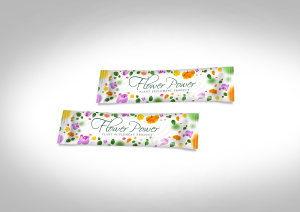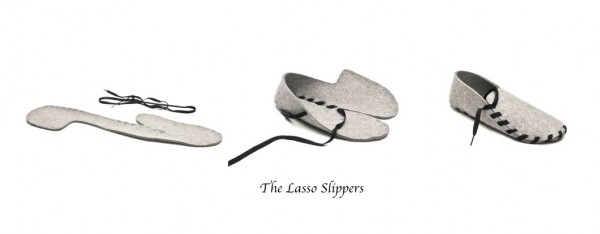Archive for the ‘Green’ Category
Posted in:
-
What you should be doing in the garden in April / May?
-
Posted by: Zerodour on April 22nd, 2014 | No Comments
-
April is usually the first month that the sun makes an appearance over the garden and probably the first time in the year that you actually feel like getting out in the garden and preparing for the coming summer. It is important to make an early start on the garden though and work that you do now in April and May will reap rewards later in the year when your garden really starts to bloom. Even though there is still a chance of a late frost, things are beginning to grow so, get in your garden now and here are ten things that you should be doing to prepare for the summer months.
1. Spring clean
If you haven’t already done so, then now is the time to clean up after the winter. Clear away any dead plant growth and any other rubbish you left out in the cold months. The ground is soft enough to hoe now so you can remove any weeds and hoe the borders before the weeds get a chance to really take hold.
2. Pruning
You should be pruning your shrubs, hedges and trees now, before any birds begin to nest. Cut back foliage from any evergreen shrubs and prune back bushes, summer flowering shrubs and cut off any dead wood to help encourage new and healthy growth in the new season. All hedges, shrubs and trees will thank you for a spring feed, so give them a touch of fertilizer along with some Zerodour Flower Power to give them a good start to the growing season.
3. Re-pot and prepare geraniums
Towards the end of April or early in May is the time to re-pot geraniums and prepare them for their return to the outside world. All you need to do is re-pot them in some soil mixed with some organic compost, cut back any dead tips and then water thoroughly. Leave them on a sunny window sill for now and when they start to grow again, you can begin to feed them. If you add some Zerodour Flower Power, now, to the new soil and compost mix then you will reap the benefits of the water retention properties of Flower Power later on in the hot summer months.
4. Dead head spring bulbs
Dead head narcissi and daffodils, to keep them tidy, but, remember not to remove the leaves. Let the leaves die down naturally and this will help to replenish the bulb for the next season. You can also give them a feed around this time too, and that extra nourishment will be stored in the bulb for the next year.
5. Plant summer bulbs
Now is the time to start planting your summer bulbs, such as gladioli. Dig a small hole for each clump of bulbs, break up any large clumps in the soil and add some feed and Zerodour Flower Power to the mix before planting your bulbs in clumps, heads up, and then water in thoroughly. We recommend not planting all your summer bulbs in one go. Spread you’re planting over a few weeks and you will get a steady supply of colour, for longer, during the summer months.
6. Clean and repair your tools
It’s best to get these jobs out of the way too, so clean and repair your garden tools and give the lawnmower a quick service. If it’s warm enough, you can treat trellises and fences at this time of year as well, before the plants begin to get in the way.
7. Add fertilizer to the borders
The soil begins to warm up at this time of year, so, once you have weeded and hoed your borders, give your soil its first taste of some fertilizer of the year and give your plants a head start. Do this before mulching and if you add a little of Zerodour Flower Power with the fertilizer, the Flower Power will absorb some of the nutrients from the fertilizer and release it slowly throughout the summer.
8. Mulching
Mulching at this time of year will help prevent the invasion of the weeds in the later months. Spread a mulch of bark or compost around established bushes, shrubs and trees and over borders and it will also help to retain moisture in the soil as well.
9. Plant peas
Towards the end of April or early May is the time to sow peas in your vegetable garden. Sow your peas in a sunny part of the garden, leaving about two inches between each one and this will encourage growth. Remember to add plenty of compost and a sprinkle of Zerodour Flower Power and this will help to retain the moisture in soil which is especially important for peas if we have a long hot summer.
10. Watch out for the aphids!
Green fly and black fly can begin to multiply around this time of year so keep an eye out for them and catch them early. Check your plants for any first signs of aphids and if see them, spray them with an insecticide now. If you prefer a more organic approach, a solution of water and crushed garlic will remove them.
Posted in:
-
Science of Zeolites
-
Posted by: Zerodour on February 5th, 2014 | No Comments
-
Agriculturalists all around the world are constantly struggling to find ways to expand crop production and improve food output and they have recently been working closely with their colleagues in the field of geology to find ways of improving crop yields.
In recent years, a great deal of research effort has been directed towards the role that zeolites can play in improving soil and studies have shown that the unique ion exchange, dehydration-rehydration, and adsorption properties of zeolite materials can aid plant growth significantly in all types of soil and particularly in poor soils.
Initial research took place as far back as the 1960’s in Japan where for years, Japanese farmers have used zeolites to control the moisture content and acidity of the soil and zeolites have also been found to control the levels of ammonia in rice paddy fields when mixed with normal fertilizer.
Even though the studies suggested that zeolites could be responsible for the trapping and slow release of nutrients into the soil, these early results were only published in some rather obscure publications. Since then however there has been a growing awareness of the properties of zeolites and studies into the additive have been carried out in many agricultural laboratories around the world and scientists now recognize the huge potential of these materials in agricultural productivity.
A study in Japan showed that when zeolites were applied along with the normal fertiliser to rice fields, where nitrogen efficiencies of less than fifty percent had been previously recorded, the amount of nitrogen available to plants increased by 63% in just four weeks and in experiments carried out by the Great Western Sugar Co. In Longmont, Colorado, significant increases in the total matter production of sugar beet were reported following the application of zeolites.
The use of zeolites in agriculture is also proving to be of great interest in developing countries. The materials unique properties reduce the amount of expensive fertiliser that needs to be applied to the soil and greatly improves moisture retention.
Scientifically proven to enhance plant growth, zeolites are now also available for the garden. Even in good soil, their absorption and slow release properties retain moisture in the soil and so reduce the need for frequent watering. Their ability to absorb and slowly release nutrients also reduces the amount of costly fertilizers that need to be applied.
Dr. Peter Leggo, an eminent expert in the field at Cambridge University and author of studies on the properties of zeolites recently summed up the benefits of applying zeolites to the soil by answering the question why should you use zeolites in his simple response; ‘To reduce the use of fertilizer or amendments and to reduce the amount of water necessary for growing’.
Dr. Leggo found that when mixed with organic matter such as compost, Zeolites produce a very effective bio-fertilizer by increasing the population of nitrifers in the mix and, as zeolites are a naturaly occurring substance, this makes them an ideal soil improver for organic gardens too.
Posted in:
-
Gardening Tips – Using Flower Power in your Garden
-
Posted by: Zerodour on November 1st, 2013 | No Comments
-
Flower Beds
See the difference when you add Zerodour Flower Power to your flower beds along with your fertilizer or manure; bedding plants, perennials and annuals will all benefit from the improved water retention, improved structure of the soil and the slow, controlled release of nutrients.
Vegetable Gardens
Increase your crop yields by mixing Zerodour Flower Power into the soil of your vegetable garden and make sure to mix well below root level to encourage healthy growth.
Lawns
Keep your grass greener for longer; aerate your existing lawn and spread Zerodour Flower Power along with your fertilizer to keep moisture and nutrients locked in until they’re needed and promote the healthy growth of a new lawn by mixing through the root zone before laying new turf.
Bulbs
Adding Zerodour Flower Power to the bottom of the planting hole for bulbs will help stop the bulb from rotting by becoming too wet.

Planting Trees and Shrubs
Adding spread Zerodour Flower Power at the bottom of the planting hole and mixing with the infill soil will permanently increase nutrient retention and the water holding capacity of the soil.
Composting
Zerodour Flower Power can help with the compost heap as well by retaining moisture and nutrients within the compost. Zeolites also have the added benefit of being a natural deodoriser to keep unwanted smells from your garden.
Adding Zeolites to your garden this year will improve soil structure, aid water retention and store, then release slowly, those all-important nutrients that your plants need to thrive. Zerodour Flower Power comes in handy 25g packages and can be purchased in boxes of 15 packages. The product is 100% natural and biodegradable so it’s kind to your plants and kind to the environment too.
Posted in:
-
Our first app!!!
-
Posted by: Zerodour on May 4th, 2013 | No Comments
-
The excitement is in the air!
Some critical thinking may be involved, at least, we are completely dedicated to bring our first app into the daylight! And We won’t have to wait too long, it should be done very soon 🙂
Posted in:
-
Flower Power :)
-
Posted by: Zerodour on March 12th, 2013 | No Comments
-
Howady! 🙂 Good news is that our upcoming Zerodour product – will officially be called
We’ve been furiously testing and have worked with a experts to kick the tires of the new product.Based on the testing & feedback, we’ve already refined the product nicely.We’re very happy that we finally have that’s almost ready for release.In the meantime here’s our Sneak Peak
Posted in:
-
Man slippers but not boring :) Check it out
-
Posted by: Zerodour on January 22nd, 2013 | No Comments
-
The slippers will be made by a social enterprise based next to Paris which hires handicapped people.
Very nice idea from Gaspard Tiné-Berès, named Lasso 🙂
We loved
Posted in:
-
Something new for summer:)
-
Posted by: Zerodour on December 3rd, 2012 | 3 Comments
-
 French brand Iguaneye have stripped the shoes back to bar minimum. They are very flexible,very grippy, hard-wearing, and 100% recyclable. Inside for added comfort is a removable insole composed of 99% cork and 1% natural latex.
French brand Iguaneye have stripped the shoes back to bar minimum. They are very flexible,very grippy, hard-wearing, and 100% recyclable. Inside for added comfort is a removable insole composed of 99% cork and 1% natural latex.
Posted in:
-
Smart Jacket Aegis
-
Posted by: Zerodour on August 10th, 2012 | 3 Comments
-
The Aegis
a high-tech jacket that features sensors for the most common urban poisons. Designed by Nieuwe Heren and design agency based in the Netherlands, the parka lights up when it detects hazardous levels of ammonia, carbon dioxide, and benzene. (The brighter the LEDs, the worse the air quality.) If getting out of Dodge isn’t an option, a built-in respirator with an activated carbon filter lets you breathe easier.
But that not all…
The garment itself uses Schoeller Ceraspace , a textured fabric derived from ceramic particles, which are far more abrasion- and heat-resistant then leather. It’s lined with with Schoeller PCM, a specialized textile that uses millions of Phase Change Materials microcapsules to balance out extreme temperatures in your personal ecosystem.
Posted in:
-
Green Energy? Cotton T-shirts could soon charge your phone?!?
-
Posted by: Zerodour on May 29th, 2012 | No Comments
-
Lead researcher Xiaodong Li said his team knew that future body armor would need a flexible power source. And because the scientists work in South Carolina, which used to have a big cotton industry, they thought,
‘Why not use a cotton T-shirt as the energy device?’
 Although others have used cotton in devices, Li said that to the best of his knowledge his research group is the first to activate a cotton T-shirt and build it into a super capacitor. Their device’s performance is on par with other carbon-based super capacitors, according to their testing. After 1,000 cycles it had 97.3 percent retention.
Although others have used cotton in devices, Li said that to the best of his knowledge his research group is the first to activate a cotton T-shirt and build it into a super capacitor. Their device’s performance is on par with other carbon-based super capacitors, according to their testing. After 1,000 cycles it had 97.3 percent retention.“This is a very simple, low-cost process, and it’s green,” Li said. In addition to starting with a renewable plant-based material, he and his research group estimate that using cotton directly from textile mills could be as much as 10 times cheaper than chemically processing coal or petroleum into activated carbon.
Posted in:
-
Surfrider, World Water Day, Teva join forces!!!
-
Posted by: Zerodour on May 14th, 2012 | 2 Comments
-
 On World Water Day (only), supporters can join or renew their Surfrider membership or make a donation to the organization and receive a special World Water Day t-shirt. For the first 100 people who join or renew at the premium level ($100), Teva will throw in a pair of their Fuse-ion shoes.
On World Water Day (only), supporters can join or renew their Surfrider membership or make a donation to the organization and receive a special World Water Day t-shirt. For the first 100 people who join or renew at the premium level ($100), Teva will throw in a pair of their Fuse-ion shoes.In honor of Wold Water day, here are a few quick & easy ways to conserve water around the house:
•Use a broom to sweep driveways and sidewalks •Check faucets and pipes for leaks
•Take shorter showers •Utilize climate adapted plants in yard and landscapingWave to :
http://wwd.surfrider.org/




